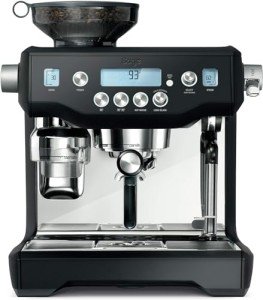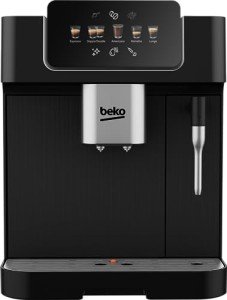이야기 | Five Killer Quora Answers To Espresso Coffee Maker
페이지 정보
작성자 Fausto 작성일25-11-11 05:34 조회11회 댓글0건본문
The Espresso Coffee Maker: A Deep Dive into the World of Quality Coffee
Espresso, the abundant, aromatic, and bold coffee brewed under pressure, has actually become a preferred worldwide. For coffee lovers, owning an espresso coffee maker can elevate their developing experience, providing a café-quality beverage right in the house. This post will check out the different types of espresso coffee machine, their functions, elements to think about when acquiring one, a comparison table for popular designs, and some often asked questions.

Comprehending Espresso Coffee Makers
Espresso coffee machine come in numerous styles, each designed to cater to different requirements and preferences. From manual machines for perfectionists to high-tech models for those who appreciate benefit, the landscape of espresso makers varies. Below are the main kinds of espresso coffee makers offered:

Types of Espresso Coffee Makers
Manual Espresso Makers:
- Overview: These machines require the user to be hands-on in all aspects of the developing process.
- Pros: Greater control over brewing criteria, more economical than automated machines.
- Cons: Steeper knowing curve, more physically demanding.
Semi-Automatic Espresso Machines:
- Overview: These machines enable users to manage the grind, tamp, and shot time while automating the developing process.
- Pros: Balance of control and convenience, appropriate for a broad range of users.
- Cons: More pricey than manual designs.
Automatic Espresso Machine With Dual Shot Machines:
- Overview: These machines take control of the developing process totally, allowing users to choose the desired volume for a couple of shots of espresso.
- Pros: Convenient and easy to use.
- Cons: Limited control compared to semi-automatic machines; higher expense.
Super-Automatic Espresso Machines:
- Overview: These machines automate the whole process, from grinding the coffee beans to frothing milk for lattes or coffees.
- Pros: Extremely convenient and time-saving.
- Cons: Often the most costly alternatives.
Stovetop Espresso Makers (Moka Pots):
- Overview: While not "true" espresso makers, these enable amateur baristas to brew strong coffee on the stovetop.
- Pros: Affordable and portable.
- Cons4.5Gaggia ClassicSemi-Automatic15Single BoilerYes₤ 4004.4Rancilio SilviaSemi-Automatic9Single BoilerYes₤ 8004.6Philips 3200 SeriesSuper-Automatic15Single BoilerYes₤ 9004.5Moka PotStovetop MakerN/AN/AN/A₤ 404.3
Investing in an espresso coffee maker can boost one's coffee-drinking experience, making it not just a day-to-day regimen, but a cheerful ritual. Each of the different types caters to varying skill levels and choices, which means everyone can discover a suitable match. With the ideal info, anyone can pick a machine that fulfills their needs, producing the ideal cup of espresso in your home.
Frequently asked questions
1. What is the difference between espresso and routine coffee?
Espresso is brewed using high pressure to force warm water through finely-ground coffee, leading to a concentrated shot with abundant flavor. Routine coffee usually uses coarser grinds and a drip method, causing a lighter brew.
2. Can I utilize routine coffee grounds in an espresso machine?
Technically, yes; however, the Espresso Machine Under £200 machine is designed for finely ground coffee. Utilizing routine coffee premises may lead to weaker flavor and inadequate pressure accumulation.
3. How often should I clean my espresso coffee machine?
Regular upkeep is important. Most professionals suggest deep cleaning every month, while day-to-day cleaning involves rinsing the group head, portafilter, and steam wand after each usage.
4. Are espresso coffee machine worth the financial investment?
If you enjoy espresso or coffee drinks that need Espresso Coffee Machine UK, buying a quality espresso coffee maker can save money in the long run compared to buying coffee from coffee shops, in addition to permitting you to experiment with various brews.
5. What's the ideal water temperature for developing espresso?
The ideal water temperature is in between 190 ° F to 205 ° F (88 ° C to 96 ° C). This temperature level range maximizes taste extraction without burning the coffee.
With this detailed guide, readers can make informed decisions while exploring the world of espresso coffee makers. Welcome the art of espresso making and change your home developing experience!
댓글목록
등록된 댓글이 없습니다.

